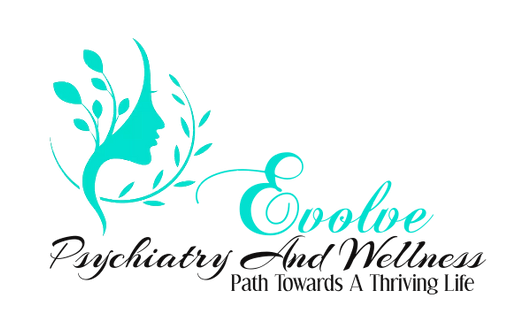Treatments
Women's Wellness
We believe every woman has the capability for healing. Once support has been initiated, results in clarity in mental health for her, her family, and the community. Each woman is unique and we believe in addressing their emotional, and physical needs and strengths as such. We are committed to providing compassionate care that maintains the highest standard of excellence in an environment that is welcoming, safe, and supportive.

Nearly 15% of women reported experiencing high or very high levels of psychological distress, particularly for those aged 18-24 and 55-64.
Nearly 15% of women have an anxiety-related condition and around 10% have had depression or feelings of depression.

1 in 6 U.S. children aged 2–8 years (17.4%) had a diagnosed mental, behavioral, or developmental disorder.
Nearly 8 in 10 children (78.1%) with depression received treatment.
6 in 10 children (59.3%) with anxiety received treatment.
More than 5 in 10 children (53.5%) with behavior disorders received treatment.
Child and Adolescent Wellness
Mental health problems are not limited to adults; many children suffer from these same disorders. At Evolve Psychiatry and Wellness, our purpose is to provide wholesome outpatient treatment for children and adolescents so they can grow up to be stable and functioning adults.
Children are very sensitive, and we understand the need to be compassionate to treat their health concerns to ensure that they are in a safe and comfortable environment.
At Evolve Psychiatry and Wellness, we provide the best care that is entirely focused on giving your child a better future.
Mental Health
Mental health is important at every stage of life, from childhood and adolescence through adulthood.
Mental health includes our emotional, psychological, and social well-being. It affects how we think, feel, and act. It also helps determine how we handle stress, relate to others, and make healthy choices.
Mental and physical health are equally important components of overall health. For example, depression increases the risk for many types of physical health problems, particularly long-lasting conditions like diabetes, heart disease, and stroke. Similarly, the presence of chronic conditions can increase the risk for mental illness.

- More than 1 in 5 US adults live with a mental illness.
Over 1 in 5 youth (ages 13-18) either currently or at some point during their life, have had a seriously debilitating mental illness.
About 1 in 25 U.S. adults lives with a serious mental illness, such as schizophrenia, bipolar disorder, or major depression.
Anxiety
Anxiety is a common mental health challenge that involves excessive worry, fear, and apprehension. It can manifest as physical symptoms like restlessness, rapid heartbeat, and sweating. While some level of anxiety is a normal response to stress, an anxiety disorder involves heightened and prolonged feelings of distress that can interfere with daily life. People with anxiety may have difficulty controlling their worries and might avoid certain situations due to their fears. Thankfully, various therapies and treatments, including cognitive-behavioral therapy and medication, can help individuals manage and alleviate the impact of anxiety.
Depression
Depression is a complex and pervasive mental health condition characterized by persistent feelings of sadness, emptiness, and a lack of interest or pleasure in activities. It can impact various aspects of a person’s life, including their thoughts, emotions, and behaviors. Individuals with depression may experience changes in sleep patterns, appetite, and energy levels. It’s important to recognize that depression is not a sign of weakness, and seeking support from mental health professionals, friends, and family is crucial for managing and treating the condition.
PTSD
Post-Traumatic Stress Sydrome
Post-Traumatic Stress Disorder (PTSD) is a mental health condition that can develop after experiencing or witnessing a traumatic event. Common symptoms include flashbacks, nightmares, severe anxiety, and avoidance of triggers associated with the trauma. Individuals with PTSD may also struggle with heightened emotional responses and difficulty concentrating. While PTSD is a challenging condition, effective treatments and therapies are available to help individuals manage and recover from its impact, fostering a path toward healing and improved quality of life.
ADHD
Attention Deficit Hyperactivity Disorder
ADHD, or Attention Deficit Hyperactivity Disorder, is a neurodevelopmental condition that affects both children and adults. It is characterized by symptoms of inattention, impulsivity, and hyperactivity that can impact academic, work, and social functioning. Individuals with ADHD might struggle with staying focused, organizing tasks, and maintaining attention to detail. While the exact cause is not fully understood, a combination of genetic and environmental factors is thought to contribute. Fortunately, there are effective treatments available, including behavioral therapies and medications, which can greatly improve the quality of life for those with ADHD.
Postpartum Depression
Postpartum depression is a type of mood disorder that some individuals experience after giving birth. It goes beyond the “baby blues” and involves intense feelings of sadness, anxiety, and exhaustion. This condition can make it challenging for new parents to bond with their babies and carry out daily tasks. Hormonal changes, sleep deprivation, and the adjustment to new responsibilities can contribute to postpartum depression. Recognizing the signs early and seeking support from healthcare professionals, therapists, and loved ones is essential for effective management and recovery. With the right treatment, those affected can find relief and regain their emotional well-being during this important life transition.
Bipolar Disorder
Bipolar disorder, often referred to as manic-depressive illness, is a mental health condition characterized by extreme mood swings. These shifts range from periods of intense euphoria and heightened energy (known as manic episodes) to episodes of profound sadness and low energy (known as depressive episodes). These mood changes can significantly impact a person’s thoughts, behavior, and ability to function in daily life. Bipolar disorder is thought to have genetic and environmental factors contributing to its development. Effective treatments, including mood stabilizing medications and therapy, can help individuals manage their symptoms and lead fulfilling lives despite the challenges posed by this disorder.
Schizophrenia
Schizophrenia is a complex mental disorder that affects a person’s thoughts, emotions, and behavior. It often leads to disruptions in perception and cognition, causing individuals to experience hallucinations, delusions, and disorganized thinking. People with schizophrenia may struggle with social interactions and exhibit changes in their emotional expression. The exact cause of schizophrenia isn’t fully understood, but it likely involves a combination of genetic, environmental, and neurochemical factors. While there is no cure, treatments such as antipsychotic medications and therapy can help manage symptoms and enhance the quality of life for those living with schizophrenia.
Nutraceuticals
Explore the potential of using nutraceuticals to address psychiatric conditions. Uncover the synergy between the appropriate mix of vitamins and supplements in conjunction with conventional pharmacological approaches.
